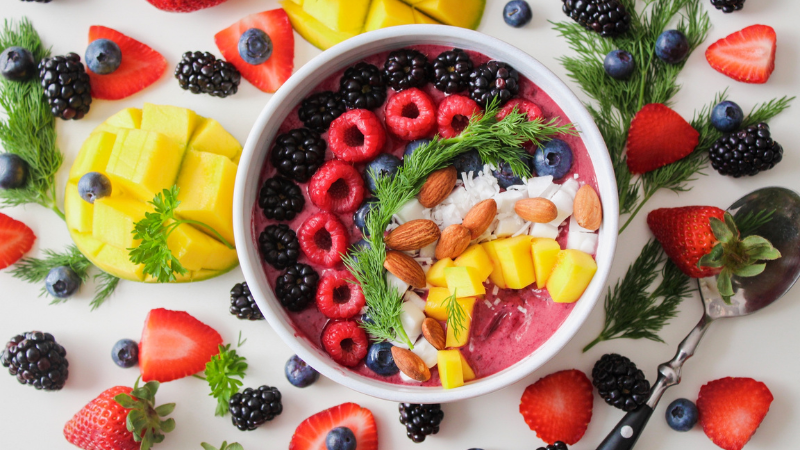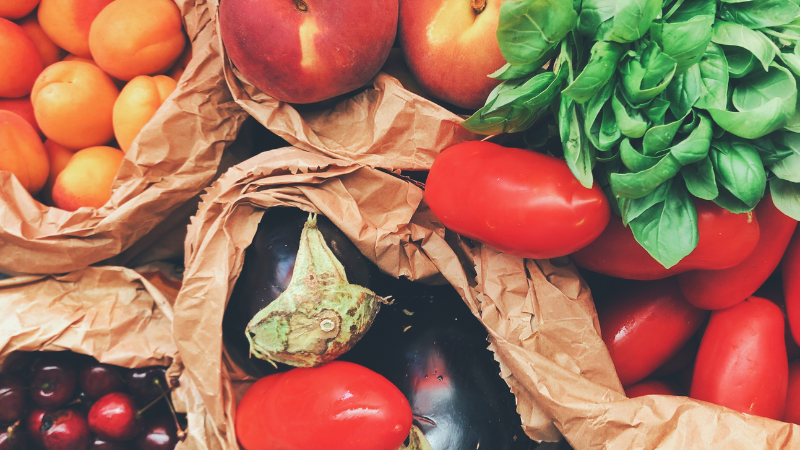Unlocking the Secrets to Clear and Healthy Arteries with These 10 Foods
Discover 10 foods that unclog arteries fast like avocado, oats, and salmon for a healthier heart. Embrace a heart-healthy diet and lifestyle for optimal cardiovascular well-being.

Are you looking for natural ways to improve your heart health and unclog your arteries? You’re in the right place. In this comprehensive guide, we’ll explore 10 foods that can help you achieve a healthier cardiovascular system. These artery-clearing foods are not only delicious but also packed with nutrients that can fast-track your journey to better heart health.
Understanding Artery Health
What Are Arterial Blockages?
Arterial blockages, medically referred to as atherosclerosis, are a common cardiovascular condition characterized by the gradual buildup of fatty deposits, cholesterol, cellular waste, and calcium in the inner lining of arteries. Over time, these substances accumulate and form plaque, causing the arteries to narrow and stiffen. This narrowing restricts the flow of blood, reducing the supply of oxygen and vital nutrients to various organs and tissues throughout the body.
Arterial blockages can affect arteries of all sizes, from major arteries like the coronary arteries that supply the heart muscle to smaller vessels throughout the body. These blockages can lead to serious health complications, including heart disease, stroke, and peripheral artery disease, highlighting the critical importance of maintaining clear and healthy arteries for overall well-being
Why Is It Important to Unclog Arteries?
Maintaining clear arteries is essential for overall health. When your arteries are clogged, your heart has to work harder to pump blood, which can lead to high blood pressure and other cardiovascular problems. Here are some reasons why unclogging arteries is crucial:
- Reduced Risk of Heart Disease: Clear arteries reduce the risk of heart attacks and other heart diseases.
- Better Blood Flow: Improved blood flow means more oxygen and nutrients reach your organs and tissues.
- Lower Blood Pressure: Unclogged arteries can lead to lower blood pressure, reducing the risk of hypertension.
- Enhanced Brain Health: Proper blood flow benefits your brain, reducing the risk of stroke and cognitive decline.
Lifestyle and Diet for Healthy Arteries
The Role of Diet in Artery Health
Your diet plays a pivotal role in preventing and treating arterial blockages. Incorporating the right foods can make a significant difference in your heart health. Here’s how you can make dietary changes for the better:
- Limit Saturated and Trans Fats: These fats can raise LDL (bad) cholesterol levels, contributing to arterial blockages. Reduce your intake of fried foods and processed snacks.
- Increase Fiber Intake: Fiber helps lower cholesterol levels. Foods rich in soluble fiber, like oats, beans, and fruits, can be particularly beneficial.
- Choose Healthy Fats: Opt for unsaturated fats, such as those found in avocados, olive oil, and nuts, which can lower bad cholesterol levels.
- Control Portion Sizes: Even healthy foods can contribute to weight gain if consumed in excess. Pay attention to portion sizes.
Lifestyle Changes for Healthy Arteries
In addition to dietary changes, certain lifestyle modifications can help maintain healthy arteries:
- Regular Exercise: Physical activity helps control weight, reduce blood pressure, and improve overall heart health.
- Stress Management: Chronic stress can contribute to arterial blockages. Explore stress-reduction techniques like meditation, yoga, or deep breathing exercises.
- Smoking Cessation: Smoking damages blood vessels and increases the risk of artery clogging. Quitting smoking is one of the best things you can do for your heart.
The Top 10 Artery-Clearing Foods

Now that we’ve laid the foundation, let’s dive into the 10 foods that can unclog your arteries and promote heart health:
1. Avocado: The Heart-Healthy Fat
Avocado is often hailed as a nutritional superstar, particularly when it comes to heart health. This creamy green fruit is a rich source of monounsaturated fats, which are considered heart-healthy fats. These fats play a pivotal role in reducing levels of LDL cholesterol, often referred to as “bad” cholesterol, in the bloodstream. By lowering LDL cholesterol, avocados contribute to a significant reduction in the risk of heart disease and related complications.
Furthermore, avocados provide a generous dose of potassium, a vital mineral known for its blood pressure-regulating properties. Adequate potassium intake helps counterbalance the effects of sodium, effectively lowering high blood pressure and minimizing the strain on the heart and arteries. Maintaining healthy blood pressure is a key factor in preventing heart disease and minimizing the risk of strokes.
Ways to Enjoy Avocado:
- Add sliced avocado to salads.
- Mash avocado for a creamy and heart-healthy spread.
- Blend it into smoothies for extra creaminess.
2. Oats: A Fiber-Rich Choice
Oats, often celebrated as a breakfast staple, are a nutritional powerhouse when it comes to heart health. These grains are an excellent source of soluble fiber, which plays a crucial role in lowering LDL (bad) cholesterol levels. Additionally, oats are packed with antioxidants, vitamins, and minerals that provide comprehensive support for your cardiovascular well-being. They not only help in regulating cholesterol levels but also contribute to overall heart health by reducing the risk of arterial blockages.
On the other hand, avocados, another heart-healthy superfood, are rich in monounsaturated fats. These healthy fats are known for their ability to lower bad cholesterol levels, making avocados a valuable addition to a heart-boosting diet.
Creative Oatmeal Recipes:
- Overnight oats with your favorite toppings.
- Oatmeal pancakes for a hearty breakfast.
- Oat-based energy bars for a convenient snack.
3. Fatty Fish: Omega-3 Powerhouse
Fatty fish, often considered an omega-3 powerhouse, are a dietary treasure for heart health. These fish, including varieties like salmon, mackerel, and trout, are rich in omega-3 fatty acids, such as eicosapentaenoic acid (EPA) and docosahexaenoic acid (DHA). Omega-3s are renowned for their anti-inflammatory properties, and they play a pivotal role in promoting cardiovascular well-being.
Consuming fatty fish regularly can help reduce inflammation, lower triglyceride levels, and improve the overall health of your arteries. The benefits of these essential fats extend beyond heart health, encompassing brain function, joint health, and more. So, whether you’re savoring a delicious salmon fillet or enjoying a serving of mackerel, you’re not only treating your taste buds but also nourishing your cardiovascular system.
Varieties of Fatty Fish and Their Benefits:
| Fish Type | Omega-3 Content | Benefits |
|---|---|---|
| Salmon | High | Reduces inflammation and lowers blood pressure. |
| Mackerel | High | Helps lower triglycerides and improve heart health. |
| Trout | Moderate | Supports overall heart health. |
4. Nuts: Nutrient-Packed Snacks
Nuts, such as almonds, walnuts, and pistachios, are not only delicious but also pack a powerful nutritional punch, making them excellent heart-healthy snacks. They are rich in unsaturated fats, which can help lower bad cholesterol levels, reducing the risk of arterial blockages. Additionally, nuts are a great source of fiber, which aids in digestion and promotes a feeling of fullness, potentially helping with weight management—a key aspect of heart health.
Moreover, these tiny powerhouses are loaded with antioxidants, vitamins, and minerals, offering an array of benefits for overall well-being. Incorporating a small handful of nuts into your daily diet can be a satisfying and convenient way to support your cardiovascular system while enjoying a tasty and nutritious snack.
Tips for Including Nuts in Your Diet:
- A small handful of mixed nuts as a snack.
- Nut butter on whole-grain toast or as a dip for fruits and veggies.
- Chopped nuts as a salad or oatmeal topping.
5. Berries: Antioxidant Superfoods
Berries, often celebrated as antioxidant superfoods, are a vibrant and delicious addition to a heart-healthy diet. Blueberries, strawberries, raspberries, and other berry varieties are packed with antioxidants called flavonoids, which play a crucial role in protecting your arteries from oxidative stress and inflammation. These flavonoids not only contribute to the vibrant colors of berries but also help maintain arterial health by reducing the risk of plaque buildup.
Additionally, berries are rich in vitamins, minerals, and dietary fiber, making them a nutritious choice for overall well-being. Whether enjoyed fresh, as toppings for yogurt and oatmeal, or blended into smoothies, berries are a flavorful way to support your cardiovascular system and savor the benefits of these natural health boosters.
Ideas for Incorporating Berries:
- Mixed berry smoothies for a refreshing treat.
- Berries as a topping for yogurt or oatmeal.
- Fresh berries as a snack or dessert.
6. Leafy Greens: Nutrient-Dense Delights
Leafy greens, such as spinach, kale, and Swiss chard, are the nutritional powerhouses of the vegetable kingdom. These vibrant, verdant leaves are packed with a plethora of vitamins, minerals, and antioxidants that contribute to optimal heart health. Low in calories and high in fiber, leafy greens are not only a boon for weight management but also possess anti-inflammatory properties that can help combat arterial blockages.
Incorporating these nutrient-dense delights into your diet provides essential nutrients like vitamin K, which plays a crucial role in regulating calcium and preventing excessive buildup in arteries. Whether enjoyed in salads, smoothies, or sautéed dishes, leafy greens are a versatile and delicious addition to any heart-healthy diet, offering a wide array of benefits for cardiovascular well-being.
Delicious Salad Recipes:
- Spinach and strawberry salad with balsamic vinaigrette.
- Kale and quinoa salad with a lemon-tahini dressing.
- Swiss chard sautéed with garlic and olive oil.
7. Garlic: Nature’s Blood Thinner
Garlic, often referred to as “Nature’s Blood Thinner,” has been celebrated for centuries for its remarkable health benefits, particularly its role in promoting cardiovascular well-being. Garlic contains a compound called allicin, which is believed to possess natural blood-thinning properties. By inhibiting the aggregation of platelets and reducing blood clot formation, allicin can help improve blood circulation and lower the risk of arterial blockages.
Additionally, garlic has been associated with blood pressure reduction, making it a valuable ally in maintaining a healthy cardiovascular system. Whether incorporated into various culinary dishes or taken in supplement form, garlic stands as a flavorful and potent natural remedy for those seeking to support their heart health and reduce the risk of cardiovascular disease.
Incorporating Garlic into Your Cooking:
- Add minced garlic to soups, stews, and stir-fries.
- Roast garlic cloves and spread them on whole-grain bread.
- Create a flavorful garlic-infused olive oil for drizzling over dishes.
8. Tomatoes: Heart-Friendly Fruit
Tomatoes, often mistaken as vegetables, are, in fact, fruits, and they offer a wealth of heart-healthy benefits. What makes tomatoes stand out is their high content of lycopene, a potent antioxidant known for its ability to protect arteries from damage and reduce the risk of heart disease. Lycopene helps lower levels of LDL (bad) cholesterol and reduce blood pressure, both key factors in maintaining optimal cardiovascular health.
Additionally, tomatoes are rich in essential vitamins and minerals, including vitamin C, potassium, and folate, all of which contribute to a healthy heart. Whether enjoyed fresh in salads, as a base for sauces, or roasted for a burst of flavor, incorporating tomatoes into your diet is a delicious way to support your heart’s well-being.
Recipes Featuring Tomatoes:
- Fresh tomato and basil salad with balsamic glaze.
- Homemade tomato sauce for pasta or pizza.
- Roasted cherry tomatoes with garlic and herbs.
9. Dark Chocolate: A Sweet Surprise
Dark chocolate, often regarded as a delightful treat, also harbors surprising health benefits when consumed in moderation. Dark chocolate with a high cocoa content contains flavonoids, potent antioxidants that can enhance blood flow, reduce inflammation, and potentially lower blood pressure.
These flavonoids may contribute to improved cardiovascular health, making dark chocolate an indulgent yet heart-friendly choice. While the benefits are promising, it’s important to consume dark chocolate in moderation, savoring a small piece, typically around 1 ounce, as an occasional treat. This way, you can enjoy the rich, complex flavors of dark chocolate while supporting your heart health.
Choosing the Right Dark Chocolate:
- Opt for dark chocolate with at least 70% cocoa content.
- Enjoy a small piece (about 1 ounce) as an occasional treat.
- Use dark chocolate in recipes for a rich, indulgent flavor.
10. Olive Oil: Liquid Gold for Arteries
Olive oil, often referred to as “liquid gold” for its exceptional health benefits, plays a pivotal role in promoting arterial health. This heart-healthy oil, a staple in Mediterranean cuisine, is renowned for its richness in monounsaturated fats, particularly oleic acid. These fats have been linked to reducing levels of LDL (bad) cholesterol, which is a key contributor to arterial blockages.
Additionally, olive oil is packed with antioxidants like polyphenols and vitamin E, which combat inflammation and oxidative stress in the arteries. These combined benefits help lower the risk of heart disease by improving overall cardiovascular function. Whether drizzled over salads, used as a cooking oil, or enjoyed as a dip for whole-grain bread, incorporating extra virgin olive oil into your diet is a delicious and effective way to support artery health.
Cooking with Olive Oil:
- Use extra virgin olive oil for salad dressings.
- Drizzle olive oil over roasted vegetables.
- Sautee vegetables, seafood, or poultry in olive oil for a flavorful twist.
Combining Artery-Clearing Foods in Your Diet

Now that we’ve explored these 10 foods that unclog arteries fast, let’s discuss how you can incorporate them into your daily meals. By combining these foods strategically, you can create heart-healthy dishes that taste great and promote your cardiovascular well-being.
Creating Heart-Healthy Meals
Breakfast:
- Start your day with a bowl of oatmeal topped with berries, sliced banana, and a sprinkle of chopped nuts.
- Enjoy a smoothie with spinach, avocado, and a handful of blueberries.
Lunch:
- Make a hearty salad with leafy greens, cherry tomatoes, grilled salmon, and a drizzle of olive oil.
- Prepare a whole-grain wrap with sliced turkey, avocado, and a side of carrot sticks.
Dinner:
- Grill a piece of mackerel and serve it with a side of sautéed garlic spinach and quinoa.
- Create a vegetable stir-fry using tofu, broccoli, and a garlic-ginger sauce, cooked in olive oil.
By incorporating these artery-clearing foods into your meals, you can create a balanced and heart-healthy diet that supports your cardiovascular system.
The Importance of Hydration
While we’ve focused on foods that can unclog your arteries, we mustn’t overlook the importance of staying well-hydrated. Water plays a significant role in maintaining overall health, including heart health. It helps transport essential nutrients and oxygen to cells while removing waste products. Staying hydrated also aids in regulating blood pressure.
To support your artery-clearing diet, make sure to drink an adequate amount of water throughout the day. While there’s no fixed rule for how much water you should consume, aim for about eight glasses (64 ounces) daily, or more if you’re physically active.
The Power of Regular Exercise
Physical activity is a cornerstone of heart health. Regular exercise strengthens your heart muscle, improves circulation, and helps you maintain a healthy weight. It also contributes to the removal of LDL cholesterol from your bloodstream, reducing the risk of arterial blockages.
Consider incorporating the following exercises into your routine:
- Aerobic Exercise: Activities like brisk walking, jogging, swimming, and cycling can elevate your heart rate and improve cardiovascular fitness.
- Strength Training: Building muscle through resistance exercises can boost your metabolism and support weight management.
- Flexibility and Balance Training: Practices like yoga and tai chi can enhance your overall well-being, reduce stress, and promote relaxation.
Remember to consult with a healthcare professional before starting a new exercise program, especially if you have underlying health conditions.
10 Foods That Unclog Arteries Fast Conclusion
Thank you for reading our Discover 10 foods that naturally unclog arteries fast post. Improve your cardiovascular health with these dietary choices.Incorporating artery-clearing foods into your diet, staying well-hydrated, and engaging in regular physical activity are essential steps toward better heart health. By making these informed choices and embracing a heart-healthy lifestyle, you can take proactive steps toward a healthier heart and a longer, more vibrant life.
With these 10 artery-clearing foods, a focus on hydration, and a commitment to exercise, you have the tools to protect your heart and enjoy a life filled with vitality and well-being. Make every meal a step towards better heart health, and your arteries will thank you for years to come. Start today, and savor the delicious journey to better cardiovascular health!
Frequently Asked Questions (FAQ’s)
FAQ 1: What causes artery blockages?
Answer: Artery blockages, known as atherosclerosis, occur due to the buildup of fatty deposits, cholesterol, and other substances in the arteries, narrowing blood flow.
FAQ 2: How can I unclog my arteries naturally?
Answer: Incorporate artery-clearing foods like avocados, oats, and fatty fish into your diet, along with regular exercise and stress management for a holistic approach to heart health.
FAQ 3: Can I still enjoy dark chocolate for heart health?
Answer: Yes, in moderation! Dark chocolate with high cocoa content contains flavonoids that may improve blood flow and lower blood pressure. Enjoy a small piece occasionally.
FAQ 4: Are there foods to avoid for artery health?
Answer: Yes, limit saturated fats, trans fats, and excessive salt intake. These can contribute to arterial blockages. Opt for healthier fats and whole foods instead.


